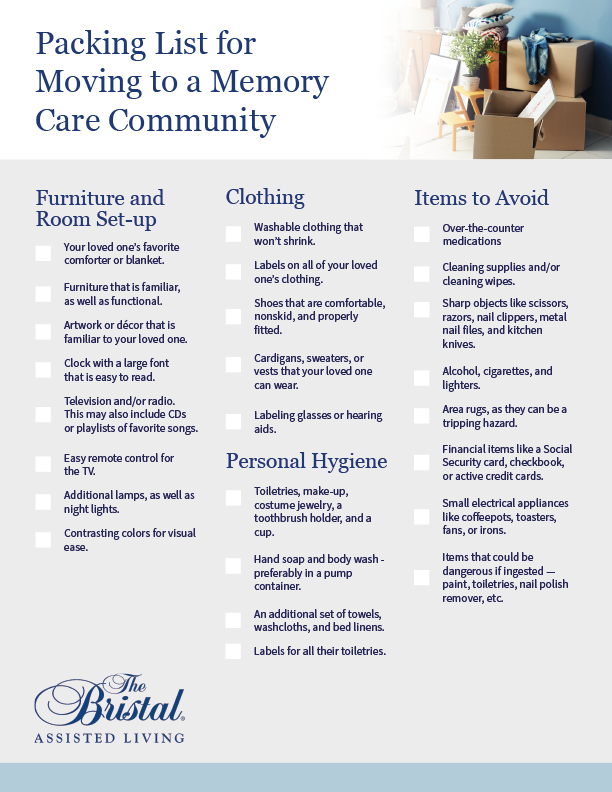Dedicated Professionals Providing Alzheimers Care Charlotte for Loved Ones
Dedicated Professionals Providing Alzheimers Care Charlotte for Loved Ones
Blog Article
Producing a Safe and Supportive Setting for Alzheimer's Care
The production of a risk-free and supportive atmosphere for people with Alzheimer's is extremely important in boosting their lifestyle. This involves not only physical adaptations within the home, such as lessening hazards and integrating familiar aspects, yet likewise the execution of structured regimens and purposeful activities that satisfy their cognitive needs. Additionally, understanding the psychological and emotional measurements of care can substantially influence their complacency and connection. Checking out these complex methods can expose essential insights into efficient caregiving methods that might transform the daily experiences of both caretakers and people.
Understanding Alzheimer's Needs
Frequently, people with Alzheimer's condition show an array of demands that need tailored methods to care. As the condition progresses, cognitive decline shows up in numerous methods, affecting memory, reasoning, and also the capacity to do everyday activities. Caretakers have to identify these progressing needs to provide ideal assistance and make sure a better of life for those influenced.
One essential element of comprehending Alzheimer's needs is identifying the value of routine and knowledge. People typically find convenience in well established patterns, which can reduce anxiousness and confusion. Caregivers must strive to produce structured everyday routines that include meaningful activities aligned with the individual's capacities and interests.
In addition, efficient interaction is vital. People with Alzheimer's may battle to reveal themselves or comprehend intricate language. Caregivers need to utilize straightforward, clear language, use non-verbal signs, and practice energetic paying attention to promote understanding and link.
Lastly, psychological and social requirements can not be ignored. Giving chances for social communication and maintaining connections can dramatically enhance psychological well-being. Caregivers must urge engagement in neighborhood tasks or family events, advertising a feeling of belonging and purpose. Comprehending these varied demands is important for producing an encouraging treatment environment.
Creating a Safe Home
Creating a safe home for individuals with Alzheimer's disease is important to advertising and lessening dangers independence. The design of the home need to focus on security while permitting individual convenience. Remove potential dangers such as loose rugs, sharp things, and clutter, which can lead to drops or crashes. Make sure that pathways are well-lit and clear, as appropriate illumination lowers disorientation and improves movement.
Including adaptive functions is also vital. Install grab bars in washrooms and near stairs, and take into consideration using non-slip floor coverings in wet areas. In addition, utilizing different shades for floors and walls can assist in distinguishing areas, aiding to reduce complication.
Knowledge is essential for people with Alzheimer's. Personalizing the atmosphere with acquainted things and photographs can strengthen a feeling of belonging and security - Alzheimers Care Charlotte. It is likewise valuable to have a designated area for day-to-day tasks, such as reading or crafting, which can offer framework to their day
Last but not least, implementing a protected outside room permits safe exploration while connecting with nature. By thoughtfully creating the home setting, caretakers can significantly enhance the high quality of life for individuals dealing with Alzheimer's illness.
Enhancing Interaction Abilities

Non-verbal interaction, consisting of facial expressions, motions, and touch, plays a critical duty in communicating empathy and understanding. Maintaining eye call and a calm behavior can enhance the convenience level of the individual, advertising a sense of safety and security.
In addition, it is very important to practice energetic listening. This includes being totally existing, showing perseverance, and allowing the individual to reveal themselves without disturbance. Repeating may be essential; caregivers need to be prepared to review questions or subjects, as individuals with Alzheimer's may battle with memory recall.
Furthermore, using aesthetic help or hints, such as pictures or familiar things, can facilitate acknowledgment and engagement. Eventually, enhancing communication abilities is about constructing trust and producing a setting where individuals really feel listened to, valued, and understood, consequently enriching their lifestyle.
Urging Social Interaction
Promoting purposeful social interactions can considerably boost the well-being of individuals with Alzheimer's illness. Involving with others not only helps battle sensations of seclusion but also promotes cognitive function and psychological health and wellness. Structured social tasks, such as group arts, video games and crafts, or songs treatment, produce chances for residents to attach with peers and caretakers, which can lead to improved mood and decreased stress and anxiety.
Creating an inviting environment that urges socializing is necessary. This can be accomplished by setting up common rooms that promote communication, such as comfy seating areas or activity spaces. Furthermore, integrating culturally pertinent and acquainted tasks can motivate and stimulate memories involvement, allowing individuals with Alzheimer's to feel even more connected to their past experiences.
Additionally, caregivers should be educated to recognize and advertise social interaction among residents. By focusing on social interaction, we can substantially enrich the lives of those living with Alzheimer's, promoting a sense of area and belonging.
Sustaining Caregiver Well-being

To support caregivers, companies need to offer routine training and academic sources to boost their understanding of Alzheimer's disease and caregiving techniques. Supplying accessibility to reprieve treatment solutions allows caregivers to take required breaks, decreasing anxiety and exhaustion - Alzheimers Care Charlotte. In addition, fostering a community top article through support groups can help with emotional sharing and the exchange of functional recommendations amongst caretakers, developing a network of common assistance
Psychological health and wellness sources, such as therapy services, can likewise be important in attending to the emotional toll caregiving can take. By prioritizing caregiver well-being, we create a more lasting caregiving setting that not just profits the caregivers themselves but also enhances the total top quality of treatment gotten by individuals with Alzheimer's. Eventually, supporting caretakers is an essential part in cultivating a caring and efficient treatment setup.
Final Thought
Finally, the production of a helpful and risk-free environment for people with Alzheimer's is important to improving their high quality of life. By prioritizing safety and security with thoughtful design, cultivating psychological well-being with acquainted aspects, and promoting involvement with structured routines, caretakers can considerably impact the general my site experience of those affected by this problem. Furthermore, sustaining caregiver well-being is vital, as it eventually adds to a much my response more effective and caring care atmosphere.
Rep may be needed; caretakers ought to be prepared to take another look at questions or topics, as people with Alzheimer's may have a hard time with memory recall.

Report this page